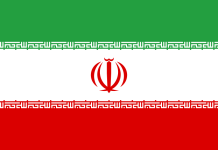The Minister of Communications, Innovation, and Digital Economy, Bosun Tijani, has announced plans for a moderate increase in telecom tariffs, refuting claims of a 100 per cent hike as proposed by operators.
Speaking to journalists on Wednesday after a stakeholders’ meeting in Abuja, Tijani stated the need for balanced regulations to sustain the telecommunications sector’s growth amidst global inflationary pressures. His comments were captured in a video shared by Channels TV on X (formerly Twitter).
“The verdict is that tariffs will increase, but not by 100 per cent,” Tijani stated. “We are still reviewing the commissioned study, and the Nigerian Communications Commission (NCC) will issue directives to strike a balance. This is about protecting Nigerians while ensuring telecom companies can continue to invest significantly.”
Telecom operators have proposed a 100 per cent tariff increase to the NCC, citing rising operational costs driven by inflation, volatile exchange rates, and surging energy prices. Operators claim that tariffs have remained static for over a decade, despite a 300 per cent rise in operating expenses within the past two years.
Airtel Nigeria’s Chief Executive Officer, Dinesh Balsingh, stressed the necessity of tariff adjustments for the sector’s sustainability. “To continue providing high-quality services and meeting the growing demand for digital connectivity, it has become essential to realign our pricing structure with economic realities,” he stated.
Similarly, the Chairman of the Association of Licensed Telecommunications Operators of Nigeria, Engr Gbenga Adebayo, warned of potential service disruptions if tariffs are not adjusted. He described the sector as being “under siege” due to soaring operational costs, which threaten operators’ ability to maintain service quality and expand networks.
In response to these challenges, Minister Tijani outlined government initiatives aimed at mitigating the impact of tariff hikes on Nigerians. These include enforcing an executive order to safeguard telecommunications infrastructure and increasing local content in the industry.
“The study we commissioned is helping us explore ways to sustain the sector without causing significant hardship for our people. Even where challenges exist, we are devising strategies to alleviate them,” Tijani added.
The proposed tariff adjustments are designed not only to address the sector’s economic challenges but also to ensure its continued contributions to Nigeria’s development. The NCC is expected to provide further directives in the coming weeks.











